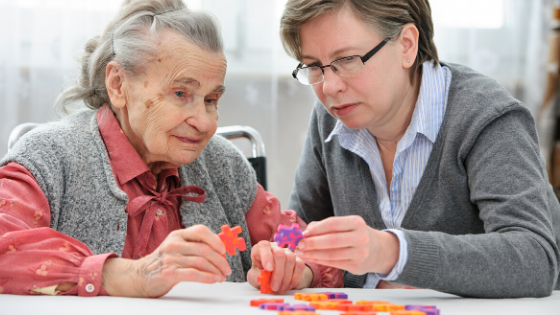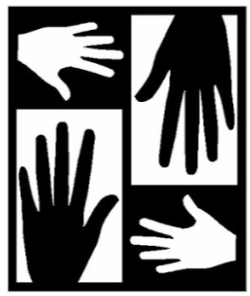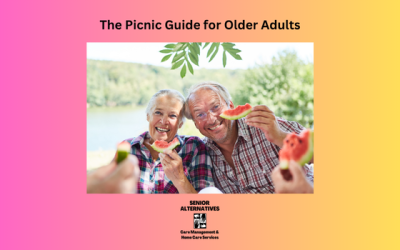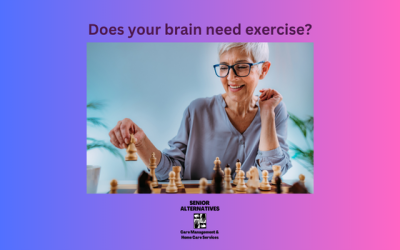October 25, 2019

We prepare a tailored activity plan for all of our clients in order to enhance the quality of life. For clients with Dementia and Depression, we typically plan activities based on what they enjoyed doing in the past. We then tailor the activity to something they can do in their present functional status.
Activities include socialization with other people, visits to a Senior Center or other outside programs, hobbies, or any other activity that provides pleasure. A pleasurable event can be as simple as eating a favorite food, or in the case of our late-stage Dementia clients, providing more sensory oriented activities (e.g. smelling or touching). We train both our caregiver staff as well as family members to implement our recommendations.
By improving the quality of life, we have seen a significant improvement in all of our clients, most notably those with Dementia and Depression. Clients with Depression have seen a lift in spirits, and our clients with Dementia have shown a decrease in agitation and other unpleasant symptoms.
Our work is based upon research conducted at the New York University Dementia Research Center, where Janet Brush, our founder and CEO, participated in the initial, groundbreaking studies.
A pleasurable event can be as simple as eating a favorite food, or in the case of our late stage Dementia clients, providing more sensory oriented activities (e.g. smelling or touching).
Related Articles
Summertime is here, let us help you plan the perfect picnic…
Summertime is a great time to enjoy the outdoors and plan a picnic, the perfect opportunity to bring joy especially for seniors in your life. With a bit of thoughtful preparation, you can create an experience that is both comfortable and memorable. To help you get started, here are some tips and ideas to plan a senior-friendly picnic that prioritizes accessibility, safety, and relaxation.
Boost Cognitive Function Through Brain Exercises
Just like the rest of your body, your brain changes and adapts over time. Through a concept known as neuroplasticity, your brain can form new connections, strengthen existing ones, and even recover lost abilities. Regular mental exercises can have a significant impact on your brain health. Read on to know more…
Why People in Blue Zones Thrive and Live Longer
Blue Zones are regions where people live longer, healthier lives compared to the global average. These areas have been studied extensively to find common denominators and answers about what makes these places unique. One of the key components of these lifestyles is community engagement, or having a strong sense of belonging and support from others. Read on to know more about Blue Zones and how we can duplicate their lifestyle and best practices.





